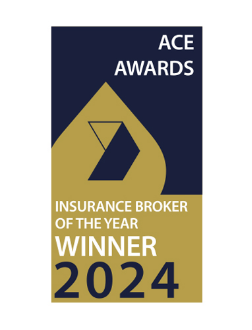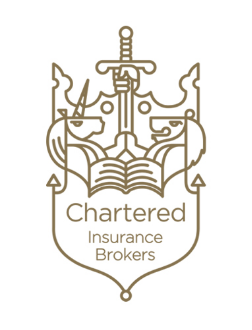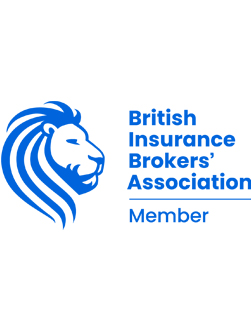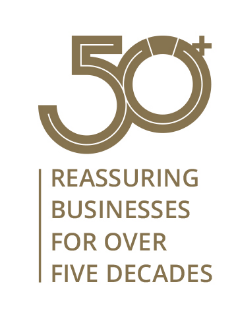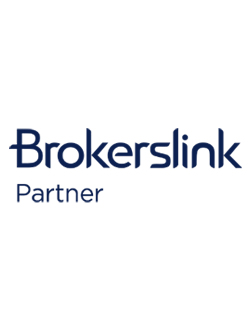Ageas updates
Ageas Update 12 January 2021
Ageas issued an update to brokers regarding provisions under commercial insurance policies in response to covid-19 lockdowns (effective from 2 November 2020). We have summarised the main points below but you may review the full communication by clicking here.
If you have any questions about the advice that has been issued or need to submit a request to Ageas please speak to your usual contact at Bridge:
Many of my clients now have employees working from home and they have taken equipment with them – is this covered?
Many of our policies will automatically allow for employees to work remotely, as long as it fits within the usual business activity. Where a policy doesn’t currently allow for this, with effect from 2 November 2020 we’ll automatically accept this position for all our policyholders without needing to notify us, where the activity is suitable to be undertaken in a home environment.
If a policyholder already has all risks cover away from the premises on computers and/or business equipment they own, they should ensure it is now sufficient. Other policyholders will need your advice to ensure they have the right cover going forward. To help you with this period, with effect from 2 November 2020 we’re automatically providing additional cover for up to £50,000 (per policy) of computer equipment and business equipment in transit, to and at employees’ homes.
This will be at no additional charge in premium, on a first loss basis.
Are employees covered for volunteering that supports national COVID-19 actions?
Employee’s who’ve been released from their standard contracts, under furlough arrangements or otherwise, and acting in a private capacity aren’t deemed to be employees while volunteering, so liability doesn’t extend to include their activities.
However, we can look at requests to extend policies to include volunteering activities where businesses are themselves supporting such activity involving principles and employees. We need to understand what the activities are being undertaken before making a decision. Our underwriting team is here to help get these assessments done as quickly as possible – what activity they’ll be doing, how often and where.
My pub and cafe policyholders are now offering take away services and/ or deliveries – will they be covered?
We’ll automatically cover our food and drink policyholders for this activity under their existing non-motor policy coverage. This is subject to the policyholder following government guidelines on hygiene and self-distancing, and to the extent that they’re allowed to continue to undertake this activity under any ongoing government action and advice.
Will you be restricting cover for unoccupied premises?
Most of our products and schemes have unoccupancy conditions that set out what cover will be maintained including; when that will be restricted, and what actions policyholders need to undertake.
Where any premises becomes temporarily unoccupied as a consequence of COVID-19, we’ll not restrict cover from the time the unoccupancy starts, until such time as the restrictions on premises being used or occupied are lifted. This is subject to policyholders using best endeavours to manage their premises; including appropriate security measures while they are closed.
Prior to closing the premises, policyholders should use best endeavours to protect the premises against freezing; preferably services should be turned off and pipes drained or where this is not possible, heating should be maintained at a constant temperature of 15 degrees.
The insured (or their representative) should use best endeavours to visit the premises at least weekly to make sure it remains safe and secure, while adhering to governmental advice and action. Where Government restrictions advise against unnecessary travel and request people stay local, we would encourage policyholders to try to incorporate a visit to their premises within daily exercise or other essential travel, as permitted; where this is not possible, we will waive the requirement for inspections.
You don’t need to notify us of the unoccupancy, where it occurs as a result of COVID-19.
As policyholders return to a premises, they may still only be using part of their premises or using the premises for shorter periods than normal. This would be deemed occupied but policyholders should refer to their specific wording definitions and conditions to fully understand whether any restrictions or limitations apply. Policyholders should of course continue to ensure reasonable actions to secure buildings that are not in full use and manage the premises to limit risks of loss.
This amended approach began on 2 November 2020 and will apply to any business which is impacted by Government restrictions as a result of COVID.
My clients are still conducting some business activities from the premises, are they considered to be unoccupied?
Many businesses, while having the front doors closed to visitors and customers, have still been able to carry on some activities at their premises. These could include; providing take-away services, processing phone and online orders, administration duties, staff training and/ or the preparation of the business for reopening. Where these are taking place and there is regular daily attendance of staff on the premises, similar to more normal trading practices, then we would consider the premises to be occupied.
Please refer to the policyholder’s policy wording for the full definition of unoccupancy, which will be helpful for customers to understand.
What happens if something fails – alarms, for example – and my client can’t get an engineer to visit the site?
Your clients should do what they can to secure the premises, while still following government guidelines. At the time of writing, Tradesmen are permitted to carry out essential work, including inside people’s homes, so in most circumstances it should be possible to arrange for the work to be done.
As soon as possible, they should arrange for security levels to be re-established and tell us about any changes in risk level in the interim, via you as their broker. At the moment, if it’s necessary to submit a claim in circumstances where security was compromised beyond the policyholder’s control, we’ll assess the circumstances on a case by case basis. You can reassure your clients that we’ll take everything into account, including their best efforts to minimise risk.
My clients were issued with risk improvement requirements. Are they still expected to complete these?
We know circumstances are beyond everyone’s control. At the time of writing Tradesmen are permitted to carry out essential work, including inside people’s homes, so in most circumstances it should be possible to arrange for the work to be done. We acknowledge that this may not always be possible, especially where your client’s business has to close. Where your client is unable to complete risk improvement requirements within the timescales specified, as a result of COVID, please speak to your usual commercial underwriting contact. We will consider requests to extend deadlines on a case by case basis bearing in mind individual circumstances and the nature of improvements required. We have re-started follow ups to surveys.
My client wants to offer their vehicles for use by the NHS, is that possible?
Yes. Our Commercial Motor policies provide cover for voluntary work on behalf of the NHS Volunteer Responders or the Local Authority Community Help Hub arrangements. Drivers must be a driver permitted to drive the vehicle under the policy.
My clients want to offer delivery services, will their vehicles be covered?
We know many policyholders involved in catering have changed their business models to offer deliveries or takeaway services.
This is covered under existing policies, as long as vehicles are already on the policy, subject of course to government guidelines being followed on hygiene and self-distancing and to the extent that this activity is permitted under government action and advice.
If the policyholder is contracting delivery drivers to use their own vehicles, then checks must be made to ensure the drivers have appropriate cover.
Motor bikes are excluded as we don’t currently offer cover for these risks.
Can my clients reduce their cover levels on SORNed vehicles?
Under normal circumstances, we do not offer an automatic option for reducing cover levels to “Laid Up Fire and Theft”, or “Laid Up AD, Fire and Theft”. However, these are not normal circumstances.
The vehicles on the policy must first be identified with the DVLA as SORN to ensure the policyholder won’t receive notices of intended prosecution for no insurance when the vehicles are removed from the Motor Insurance Database. Please remind clients, vehicles must be kept off the public road to comply with SORN requirements.
Please do not hesitate to contact us if we can be of further assistance.
Click here to return to the insurer & schemes information page.
